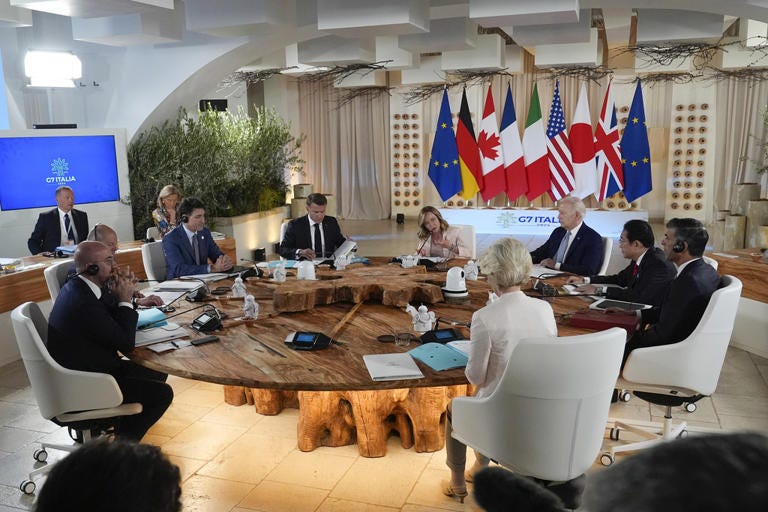The G7 Summit was held in the Italian southern region of Apulia on November 15-16, 2024. Attending the Summit were the presidents of the United States and France, Joe Biden and Emmanuel Macron; German Federal Chancellor Olaf Scholz; and the prime ministers of the United Kingdom, Japan, Canada and Italy, Rishi Sunak, Fumio Kishida, Justin Trudeau and Giorgia Meloni, who served as host. Among the guests were Pope Francis; the Secretary General of the United Nations, Antonio Guterres; and the leaders of Algeria, Argentina, Brazil, Tunisia, Türkiye, Kenya, the United Arab Emirates, Ukraine, Jordan, Mauritania and India.
The Apulia G7 Leaders’ Communiqué reveals the ethnocentrism of those who hold political power in the G7 nations.
G7 wants China to follow the international trading rules, without engaging in “industrial targeting and comprehensive non-market policies,” such as subsidizing industries and requiri…



